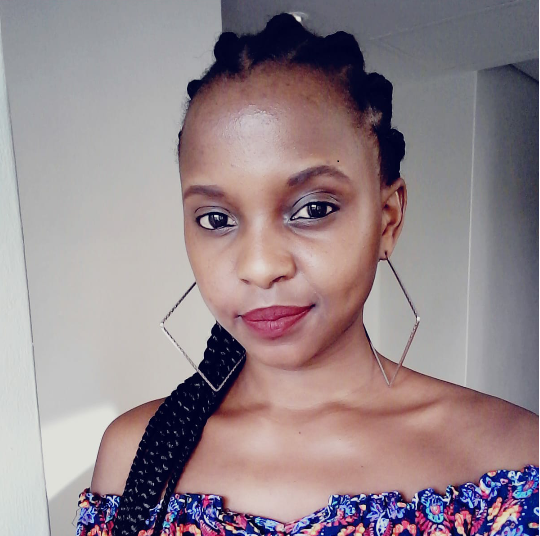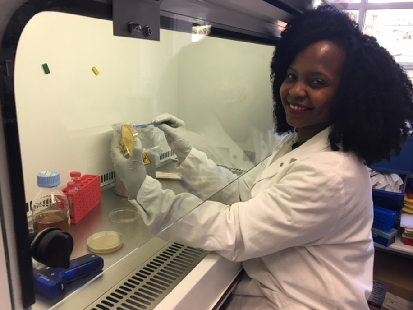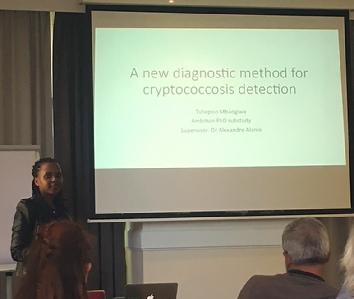PhD Studentship
Tshepiso Mbangiwa (Botswana-Harvard Partnership)

Tshepiso Mbangiwa began her AMBITION-funded PhD in early 2018, after having completed her MSc at the University of Botswana. She is registered at the University of Cape Town and has spent considerable time there, working in the laboratories with Dr. Claire Hoving. She has also spent three periods of time at the Molecular Mycology Unit at Institut Pasteur, Paris, working under the mentorship of several members of the team including Prof. Françoise Dromer, Dr. Alexandre Alanio and Aude Sturny-Leclère.
A good deal of Tshepiso’s work focusses upon an AMBITION sub-study. This focusses upon the implementation of diagnostic PCR methods to investigate fungal load and metabolism of Cryptococcus neoformans during human meningoencephalitis in HIV-infected patients. The diagnostic methods developed by Tshepiso will be tested on CSF, blood and plasma samples from AMBITION patients) that have been collected on Day 1, Day 3, Day 7 and Day 14 of the patient journey. The patients in question have been enrolled at the recruiting sites in Gaborone and Blantyre. The method will be used to assess the fungal clearance in both arms of the clinical trial and will also be analysed as a prognostic factor. It will then be compared against existing methods of diagnosing cryptococcosis, including quantitative culture and cryptococcal antigen assays (IMMY CrAg /BioSynex Crypto PS).
“Being a PhD student in the Molecular Mycology Unit has been an eye-opening experience. With my background in HBV epidemiology, I have come to appreciate both molecular biology and medical mycology. In the six months that I have been working in the Institut Pasteur lab, I have learned a lot about the epidemiology and pathogenesis of cryptococcosis. I have also had the opportunity to observe some of the laboratory procedures that are used to test for cryptococcosis. These have included growing colonies on l-Canavanine glycine bromothymol blue (CGB) agar to differentiate between C.gattii and C.neoformans strains, and using a matrix-assisted laser desorption/ionization (MALDI-TOF) procedure to characterize cryptococcus and other microbes by measuring the mass to ion ratio of an ion. I have also had the pleasure of observing India ink testing and a lumbar puncture procedure at Necker Hospital under the supervision of Prof. Olivier Lortholary.
The main focus for my first stint at Institut Pasteur was to develop a qPCR method to detect cryptococcosis. I have worked closely with Dr. Alexandre Alanio and Aude Sturny-Leclere to develop a set of primers that can detect Cryptococcus gattii and neoformans, but we are still working on validating this assay on human samples. This work is ongoing and we hope to have the results very soon.
I presented the preliminary results of my work at the Institut Pasteur Mycology departmental retreat, which was held at Château de Maffliers from 8-9 October 2018. The title of the presentation was ‘A new diagnostic method for cryptococcosis’. I now look forward to working with my supervisor Dr. Claire Hoving at the University of Cape Town in early 2019.”


cryptococcosis’ at the Institut Pasteur departmental
retreat in October 2018


